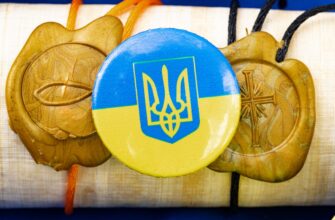- Introduction: Navigating Bitcoin’s Halal Status in Modern Finance
- Understanding Bitcoin and Core Islamic Finance Principles
- Mufti Menk’s Perspective on Bitcoin and Cryptocurrency
- Key Factors Determining Bitcoin’s Halal Status
- Using Bitcoin in a Halal Way: Practical Guidelines
- FAQ: Is Bitcoin Halal? Mufti Menk and Common Questions
- Conclusion: Faith First in the Crypto Age
Introduction: Navigating Bitcoin’s Halal Status in Modern Finance
As Bitcoin and cryptocurrencies reshape global finance, Muslims worldwide grapple with a critical question: Is Bitcoin halal? Esteemed scholars like Mufti Ismail Menk offer invaluable guidance rooted in Islamic principles. While Mufti Menk hasn’t issued a direct fatwa on Bitcoin, his teachings on Islamic finance provide a framework to evaluate its permissibility. This article explores Bitcoin through the lens of Shariah compliance, drawing on Mufti Menk’s insights about avoiding riba (interest), gharar (excessive uncertainty), and unethical speculation. Discover how to align cryptocurrency engagement with your faith.
Understanding Bitcoin and Core Islamic Finance Principles
Bitcoin is a decentralized digital currency operating on blockchain technology, free from central banks. Its value fluctuates based on market demand, raising questions about its compatibility with Islamic finance, which emphasizes:
- Prohibition of Riba (Interest): Earning or paying interest is strictly forbidden.
- Avoidance of Gharar (Uncertainty): Transactions must be transparent, with minimal ambiguity.
- Ethical Investments: Wealth must not support haram activities like gambling or fraud.
- Asset-Backed Value: Currency should derive worth from tangible utility or trust.
Bitcoin’s volatility and lack of intrinsic value challenge these tenets, necessitating careful analysis.
Mufti Menk’s Perspective on Bitcoin and Cryptocurrency
Though Mufti Menk hasn’t explicitly ruled on Bitcoin, his sermons emphasize caution toward speculative assets. He highlights that investments must avoid:
- Gambling-like Behavior: “If something resembles gambling, it carries its ruling,” he often states. Bitcoin’s price swings can mirror gambling, creating gharar.
- Supporting Illicit Activities: Mufti Menk warns against systems enabling crime, a concern given Bitcoin’s use in dark web transactions.
- Unearned Wealth: Earning through speculation rather than productive effort conflicts with Islamic ethics of fair trade.
He advises consulting local scholars but stresses that uncertainty and detachment from real economic value are red flags.
Key Factors Determining Bitcoin’s Halal Status
Scholars debate Bitcoin using these Shariah criteria:
- Currency vs. Asset: If classified as a currency, it must avoid riba. As an asset, it requires tangible utility—something Bitcoin lacks.
- Gharar Assessment: Extreme volatility introduces uncertainty in transactions, potentially rendering trades invalid.
- Usage Risks: Association with scams, ransomware, or unregulated markets may deem it haram.
- Zakat Obligations: If owned, Bitcoin must be included in zakat calculations based on market value, adding complexity.
Many scholars, echoing Mufti Menk’s cautious tone, lean toward prohibition due to these factors.
Using Bitcoin in a Halal Way: Practical Guidelines
If you choose to engage with Bitcoin, minimize risk with these steps:
- Avoid Speculation: Treat it as a long-term store of value, not a quick-profit tool.
- Prioritize Transparency: Use regulated exchanges and document transactions clearly.
- Ensure Ethical Use: Never facilitate haram activities; opt for halal crypto projects.
- Calculate Zakat Annually: Assess Bitcoin’s value at the lunar year’s end and pay 2.5%.
Remember: When in doubt, prioritize Islamic alternatives like gold or Shariah-compliant stocks.
FAQ: Is Bitcoin Halal? Mufti Menk and Common Questions
Q: Has Mufti Menk declared Bitcoin halal or haram?
A: No. Mufti Menk hasn’t issued a specific fatwa but urges caution, highlighting risks like gharar and speculation that may conflict with Islam.
Q: What are the main Islamic concerns about Bitcoin?
A: Key issues include extreme volatility (gharar), lack of intrinsic value, potential for criminal use, and speculative trading resembling gambling.
Q: Can I invest in Bitcoin as a Muslim?
A> Many scholars discourage it due to uncertainty. If you proceed, avoid leverage, short-term trading, and ensure earnings don’t involve riba.
Q: How is Zakat paid on Bitcoin holdings?
A: Calculate its market value at the end of your zakat year and pay 2.5% in cash or equivalent assets. Track fluctuations diligently.
Q: Are there halal alternatives to Bitcoin?
A> Yes! Consider gold/silver (digital or physical), Shariah-compliant stocks, or Islamic cryptocurrencies backed by tangible assets.
Conclusion: Faith First in the Crypto Age
Determining if Bitcoin is halal requires weighing Islamic principles against its speculative nature. While Mufti Menk’s teachings signal caution, individual responsibility is key. Prioritize transparency, avoid exploitation, and seek guidance from trusted scholars. In a rapidly evolving digital economy, let faith anchor your financial choices—ensuring wealth benefits society and earns Allah’s pleasure.








